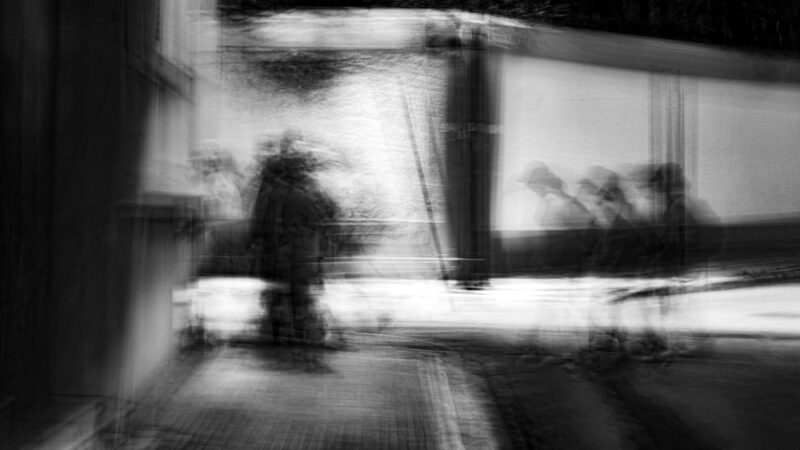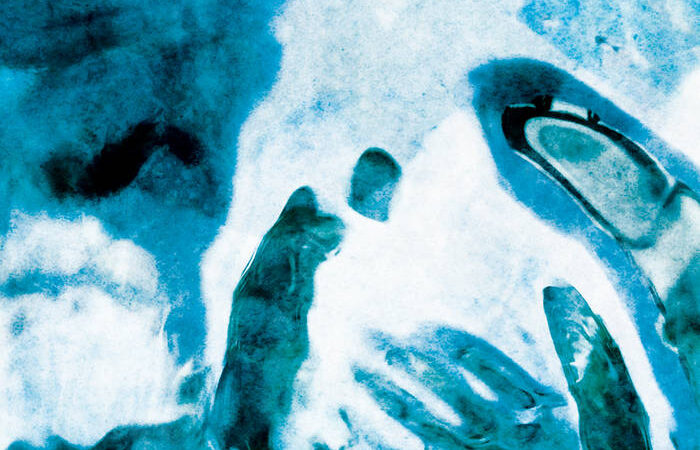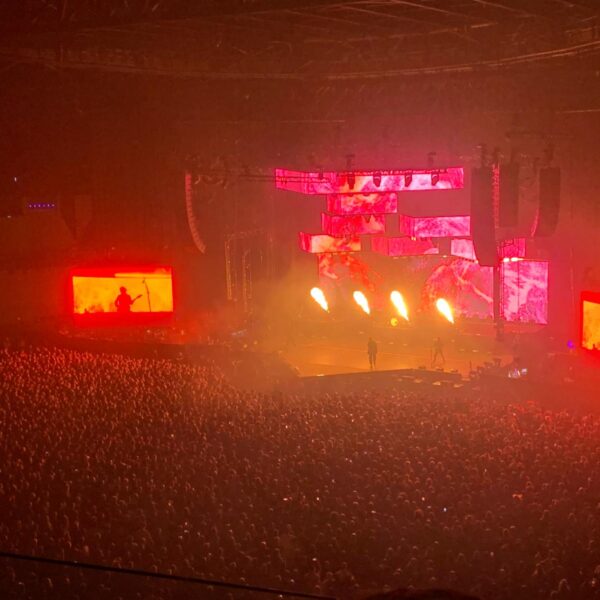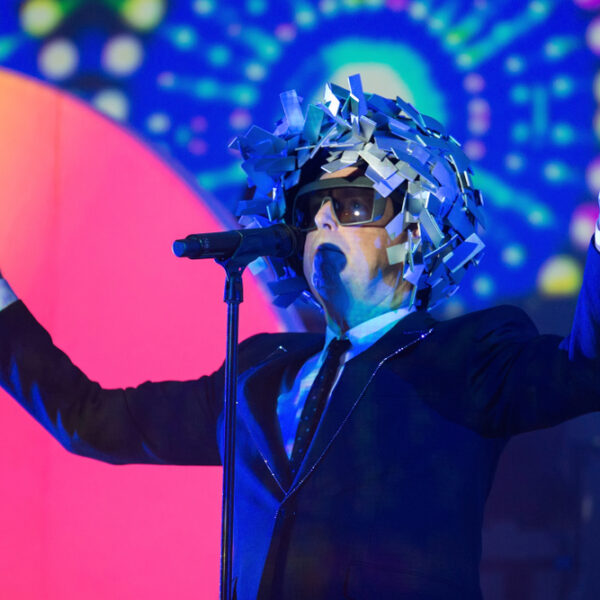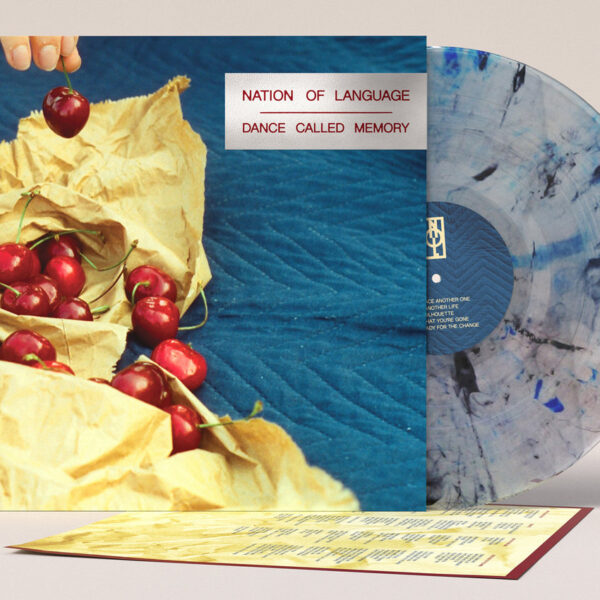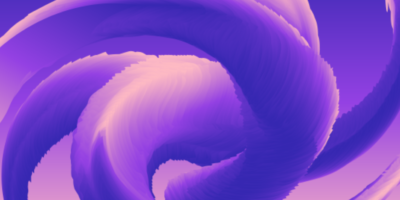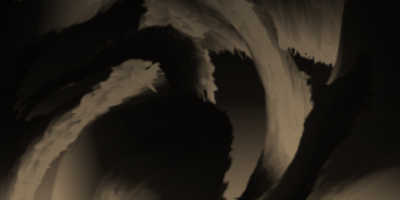Wayne Coyne – Back in the Day
The Flaming Lips frontman is in expansive mood when he meets Alex Cull for an interview more like a session at a psychoanalyst – for both. Wayne Coyne seeks to explain what The Terror is: their latest album, yes, but much more.
“I’ve sung a lot about the power of love, the power of kindness, all of these things,” The Flaming Lips’ Wayne Coyne explains to me from the antique-adorned confines of his East London hotel room. “I’ve sung a lot about death, too, but I’m aware that it doesn’t matter what you sing about or what you think about: at our most basic level, human beings have the capacity to be the worst things ever.”
He’s in the process of describing to me the innermost workings of his much lauded group’s thirteenth – or sixteenth, depending on how you’re keeping count – record, The Terror; without doubt, one of the band’s densest, most impressionistic outings in a career arc forged from stylistic U-turns, bombastic rock songs and wonderfully eccentric behaviour. It’s an album dripping with feelings of anxiety, claustrophobia and a deep-seated concern over the nature of our existence – attributes it can be hard to attach to the colourful showmanship for which Coyne is known and loved by rowdy festival crowds. It’s this black-and-white divide between how we appear on the surface and the feelings that twist and rive beneath that defines The Terror, though.
“The Terror isn’t obvious. The Terror isn’t in front of you. The Terror isn’t outside of you,” he informs me with all the zeal of a prophet ardent in his theorising. “The Terror is this little realisation in you that will eventually destroy you.” But, where does this newfound outlook – or should that be in-look – stem from? The answer lies in the earliest days of the record’s conception.
“I was walking through the park and this kid – who I didn’t know at the time but ended up taking a picture of [which would go on to become the album’s cover, albeit in a very solarised form] – came up and told me that he was taking LSD and drawing pictures. He was this weird, unstable guy who, sitting in the light, looked very peaceful, but within this scene I saw someone who internally was fearing every second he was alive. That’s, little by little, what The Terror is; a subtle thing that you can’t see, but that’s most definitely there.”
To discover this dark spot, Coyne had to channel deep within himself, beneath the more forthright aspects of his personality and on to the subconscious below. “A lot of times as The Flaming Lips, we’ve used the band as a vehicle for ‘Wayne is singing a song and we’re the sound behind him’. The Soft Bulletin is like that: it’s built as a big sound and I’m the voice or personality in front of it. With this record, it’s almost made to be like it’s not me but some voice from beyond, which – if I’m being psychoanalysed – probably means something about me. The idea that I get to not be the singer is allowing me to sing things that I wouldn’t say in my right mind.”
While it would be easy to label Coyne as a self-involved fanatic with Jim Morrison’s eagerness to expand his mind and Carl Jung’s need to explore it, it’s the clarity with which he speaks – over what are inherently hazy, inwardly focused concerns – that steers clear of any insinuations of over-indulgence in his art. He’s given himself over to this way of thinking as a way of unburdening his slumbering id and finding new ways to express himself through music.
“There are things that you can’t say but on some level know, and that’s what music allows for: the most internal, intense thing that you cannot say, music will make you say it. So, were I to kill somebody and hide the body, if you listen to my music long enough, you’ll know where I hid it.”
While there aren’t any revelations quite as Telltale Heart as that on The Terror, it maintains its listener’s interest through its pensive, ongoing tension and the very rare releases where its abrasive tonalities briefly stop grinding against one another; a high point of which is ‘Try to Explain’, a song that Coyne compares to Edvard Munch’s The Scream. “It goes along as if life is normal and then it kind of explodes. It culminates in this really grand thing, but really it’s this spear of fear and pain and anxiety.” A scream of that, if you will. “It’s also very hokey. If you take away what we did to it, as a sound and production, it could be a fucking Celine Dion song. It could be about longing. It could be ‘why did you break up with me?’”
How does Coyne see these frequently dark, infinitely more unnerving songs fitting into the Lips’ often-mercurial live set? Truthfully, he’s not too concerned. “Sometimes, we play such an overload show that – even from one year to the next it may be quite different – it all feels the same. It’s like having spaghetti and birthday cake for dinner every night: you put different meatballs in it and it might have a different flavour of icing, but it still feels like spaghetti and birthday cake. Now, we’re saying it’s neither; it’s not even food. It’s like a piece of mercury dripping in your heart. The reason isn’t to say that this music is great and all our other stuff sucks, it’s to present it as a different moment, a different experience.”
In many ways, it doesn’t matter whether Coyne’s singing about life, love, death or fear, when a performer gives themselves over so completely to their art – on stage or in the studio – it’s hard not to hang on their every word. It’s hard not to feel a little redeemed about humanity, too; no matter what The Terror may tell you otherwise.



